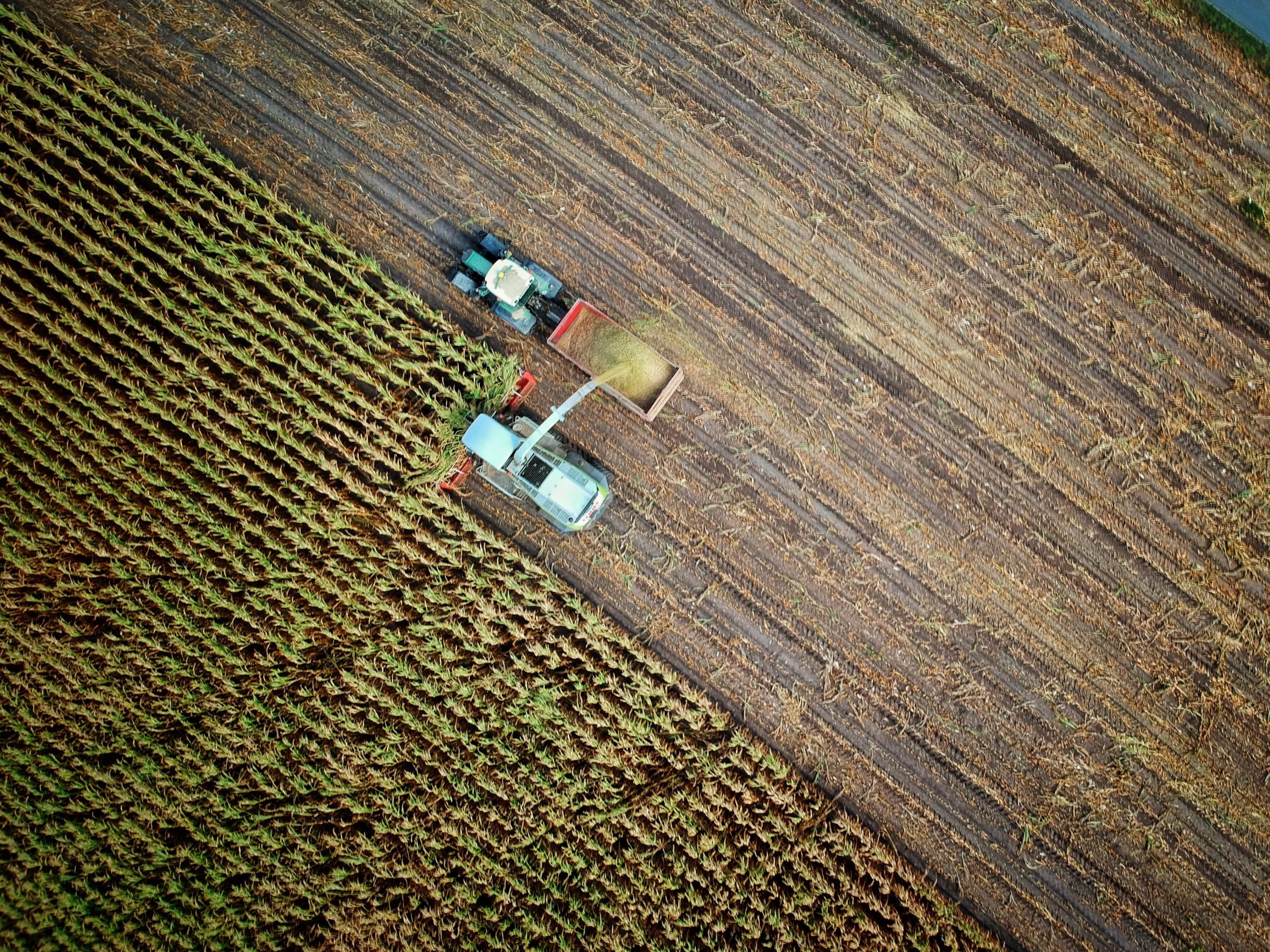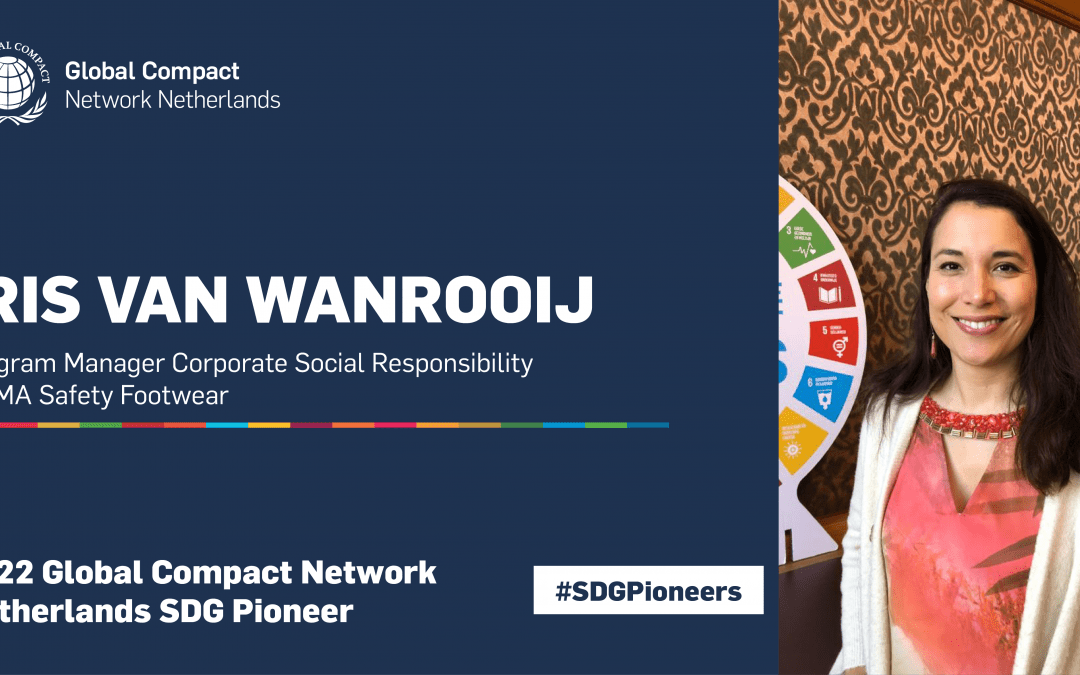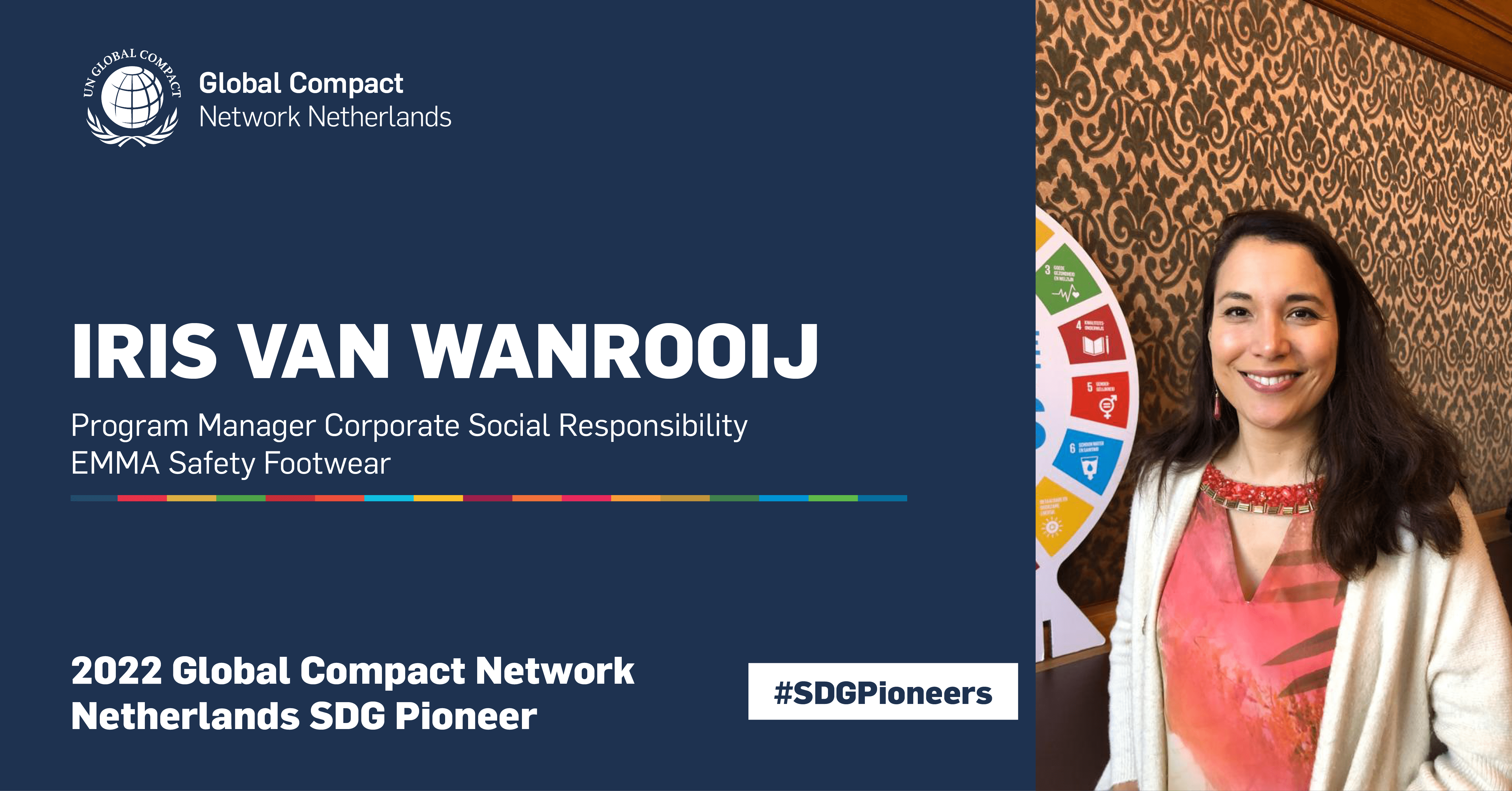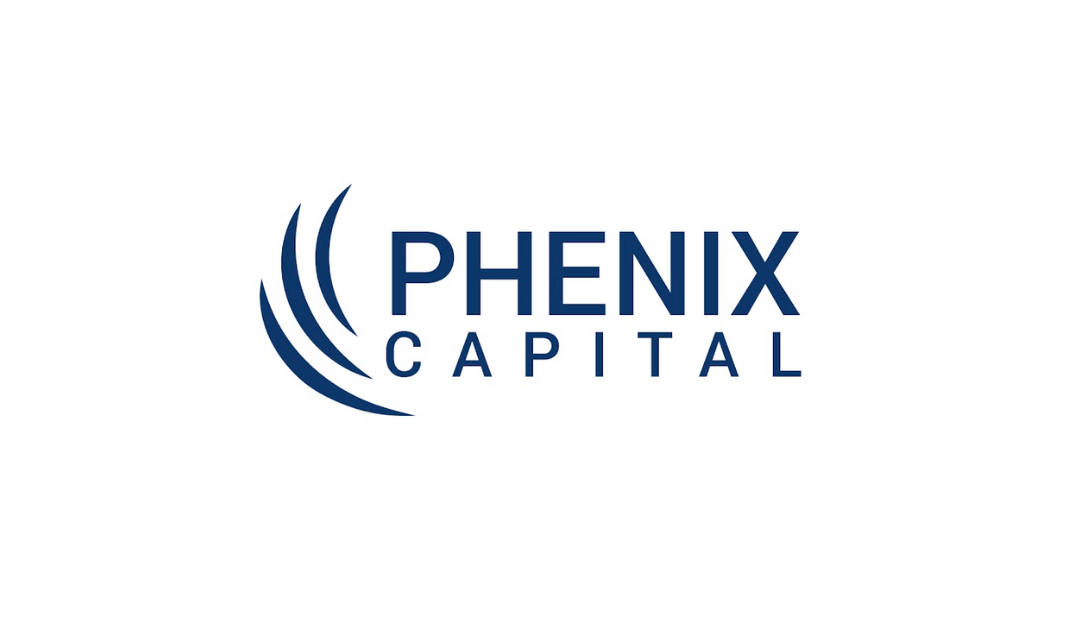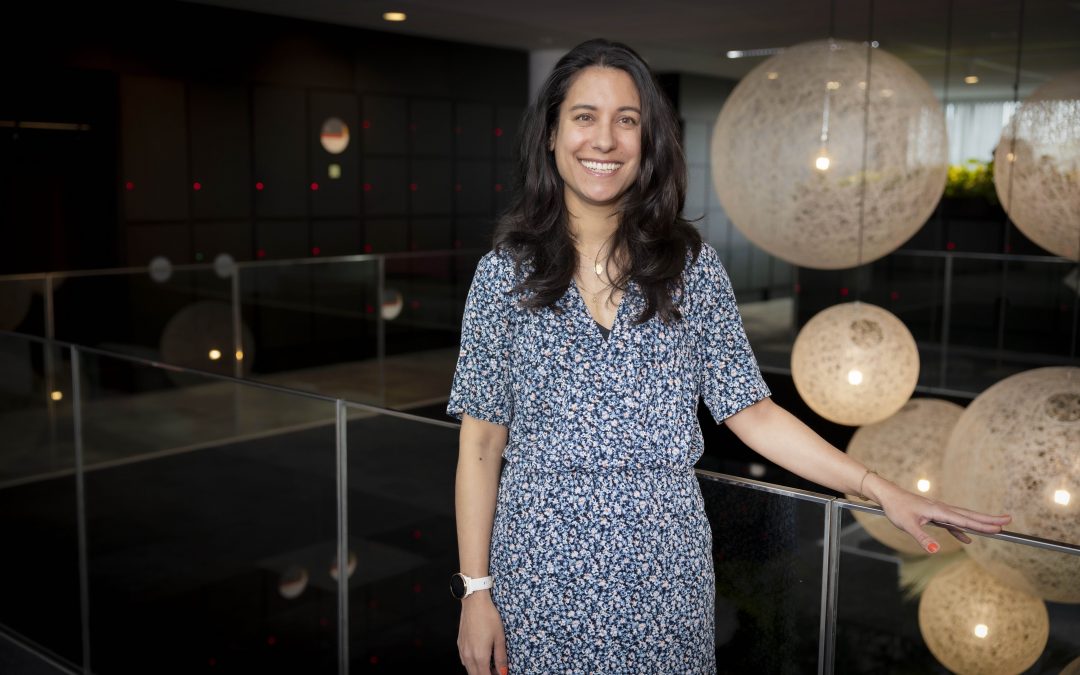
Myrthe van der Plas is the Dutch SDG Pioneer of 2022 runner-up.
Myrthe van der Plas is the Dutch SDG Pioneer of 2022
runner-up
Myrthe van der Plas is the Dutch SDG Pioneer of 2022 runner-up. The SDG Pioneers is a UN Global Compact initiative that highlights professionals working within a UN Global Compact member organisation. These professionals are individuals who have taken a Ten Principles-based approach to set ambitious, and impactful SDG goals. In this article, you can read more about Van der Plas’ leading work, both in her personal life and as Senior Manager of Data Analytics at PwC.
Positive impact on the SDGs
At PwC, Van der Plas contributes to creating a positive impact on the SDGs by supporting clients in their sustainable decision-making process. She does this through the Responsible Business Simulator, an approach that incorporates financial and non-financial elements into the process. This way, organisations can focus on people and the planet while still making a profit.

Photo Credits: Photo Republic
Van der Plas has supported the decision-making of many organisations through the Responsible Business Simulator. Examples include Stichting IZZ (a non-profit organisation) in their decisions around the sustainable employability of its employees, DSM with a strategic energy issue, and the KNVB (Royal Dutch Football Association) in calculating the social and economic impact of football. During the Syrian refugee crisis, Van der Plas also looked at how municipalities could best spend their budgets on status holders while supporting a dialogue based on facts rather than gut feelings.
In addition, Van der Plas conducts PwC’s annual SDG Impact Measurement. The SDG Impact Measurement maps out which SDG goals PwC has made a positive impact on and where there is still room for improvement.
Lakisama Foundation
In her personal life, Van der Plas has committed to SDG 1: no poverty and SDG 4: quality education through her own Lakisama Foundation. In her own words: “Lakisama provides children in Kenya with access to education. Before actually setting up Lakisama, I spent a long time looking for ways to give people in lower-to-middle income countries the chance of a better future. Many conversations and books later, education seems to be a good way to go.”
“World poverty still grips me daily.”
Van der Plas considers combating world poverty a crucial goal, saying: “SDG 1 – no poverty, is closest to my heart. The poverty in the world still grips me daily. It feels unfair that many people live below the poverty line. It feels like it is very unnecessary. That has been a reason for me, in addition to my regular work, to do voluntary work and to establish a foundation through which I contribute to poverty reduction.”
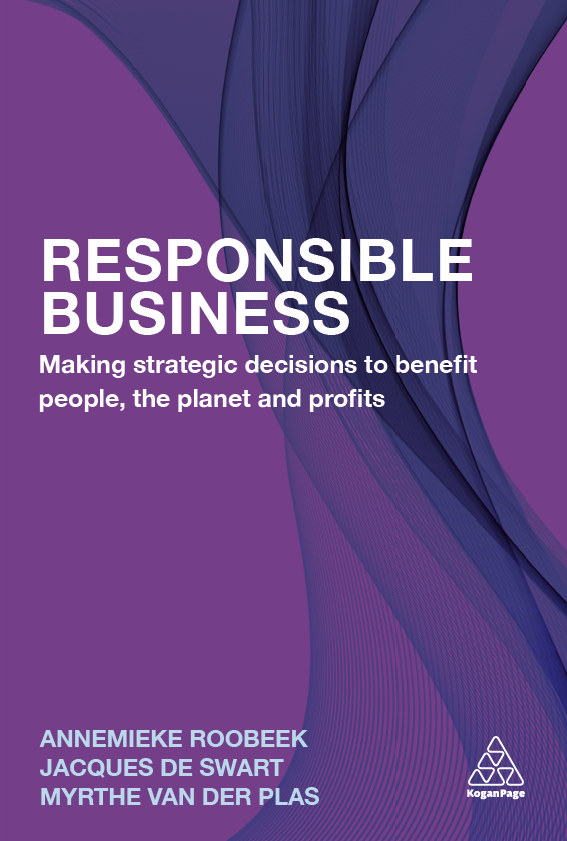
She recognises that there is still a long way to go, but that change is evident: “I think there is much room for individuals and companies to be more committed to this than they currently are. However, I see improvements favouring other SDGs that could potentially positively impact SDG 1.”
Guidelines to accelerate change
“The existence of the UN Global Compact helps to clarify the importance of looking beyond profit and at what is important next. The UN Global Compact principles are a valuable tool for making a clear commitment and serving as a basis for strategy and policy. I use the publications to stay up-to-date, enrich my knowledge, and occasionally support my perspective. The SDG Ambition Accelerator helps define robust ambitions and targets. We consulted the GC Inventory of Business Indicators when creating the indicators for the SDG Impact Measurement for PwC.”
Get to work!
Van der Plas’ most important advice is: “Get to work on it! It doesn’t have to be extensive and compelling right away; the most important thing is taking the first step. Once you’ve started, you’ll gain new knowledge that will allow you to take natural follow-up steps. Get inspired by people and organisations that are already working on sustainability.”


